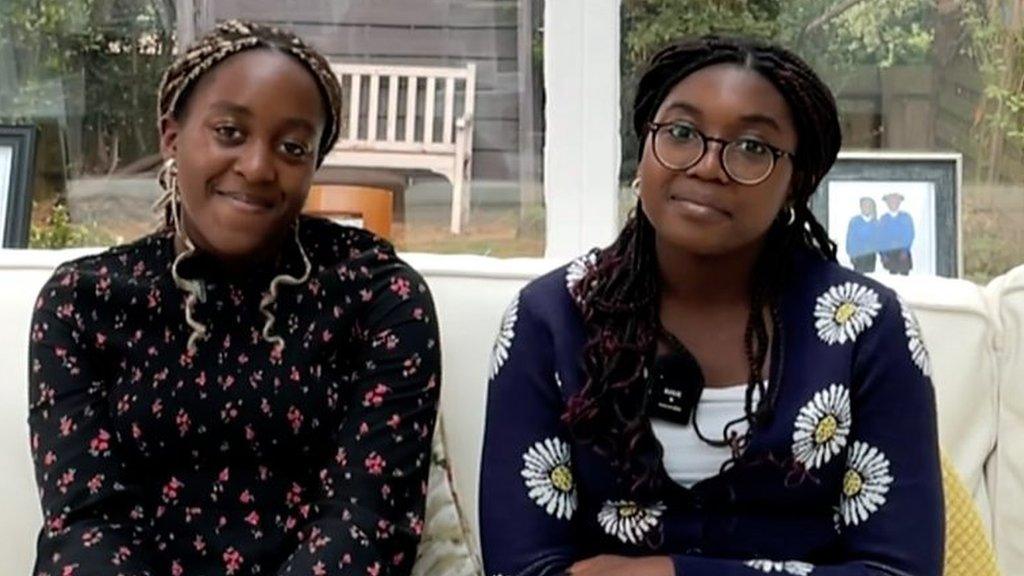World Book Day: 'Why I've given away 6,000 free books'
- Published
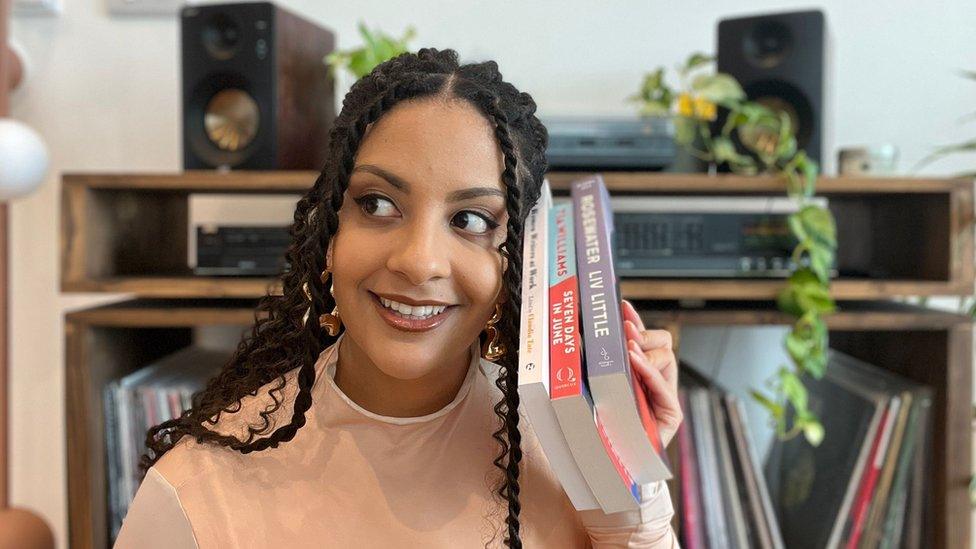
Sofia founded the Free Books Campaign
Imagine having access to thousands of books and giving them all away - for free.
That's exactly what writer and cultural historian, Sofia Akel, did. "Reading shouldn't be a privilege," she says.
The 28-year-old has always loved reading, and she would often find herself in the library near the East London estate where she grew up.
She says this was where she was able to "nurture my mind as a child".
But as Sofia grew older, she realised not everyone had such easy access to books, with many not being able to afford them.
So she created the Free Books Campaign, external - a non-profit company dedicated to getting books by authors of colour to those who can't afford them.
Since launching in 2020, it has donated 6,000 books to people across the UK and Ireland.
Anyone can ask for a book they'd like to read. The company is funded by donations, and if it has enough money, it will buy the book and send it over.
"[Reading] should be something that everyone is able to participate in, the same way that most people would hopefully agree that education shouldn't be a privilege," she says.
"Why I can relate is that if I wasn't able to have access to the library literally on my doorstep, I wouldn't be where I am now," says Sofia
"My worldview, my imagination and my vocabulary would have been significantly reduced."

Sofia's tips for reading more
Don't put pressure on yourself
Try listening to podcasts or audio books - they are still a form of reading
Try long articles
Set aside 10 minutes in the morning
Reading anthologies - which is a collection of writings or poems, external - can be a good way to get into reading because they're usually only up to 10 pages per story

The campaign is built entirely on trust - something Sofia takes pride in.
"All we ask is that you can't afford or access books yourself," Sofia says. "I don't feel that anyone is in a position to tell another person whether or not their claims for affordability or accessibility are valid.
"I've known from growing up what it's like to be on that other side.
"Having these things accessible, where you don't have to jump through so many hoops just to get access to a book is really important."
Recent data suggests it may be more difficult to access books at a library.
According to the The Chartered Institute of Public Finance and Accountancy (CIPFA), library book stocks decreased by 11% across England, Wales and Scotland between 2021 and 2022.
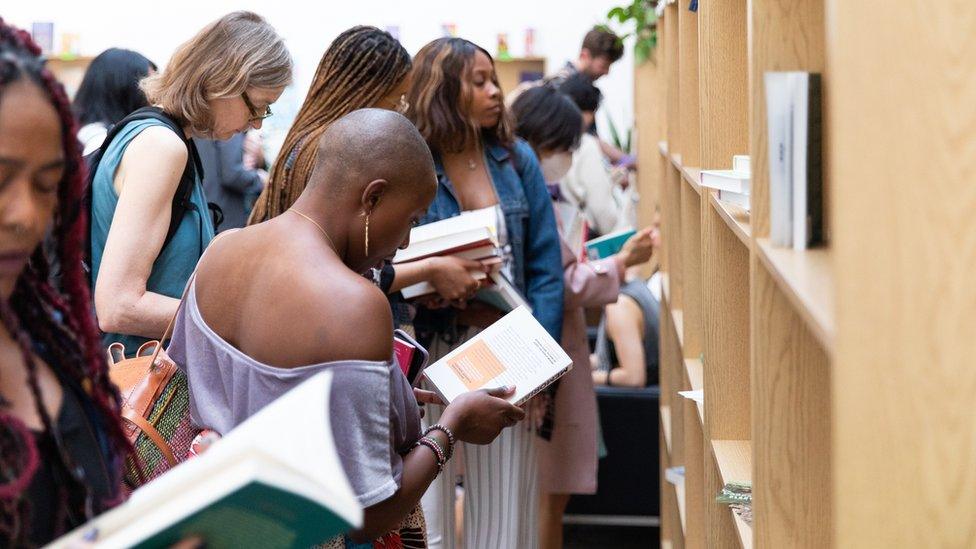
Sofia says reading "shouldn't be a privilege"
Accessibility is very important to Sofia.
In order to make sure people know about the scheme, she also launched the Free Books festival in Peckham, south-east London - with Broccoli Productions, a media production company.
Over a weekend, they gave away about 3,000 books.
Sofia worries that book festivals are often in the countryside or "grand" areas where you "have to spend hundreds of pounds".
"Everything was free," she says. "Literally everything. And then everyone was allowed to take home two books."
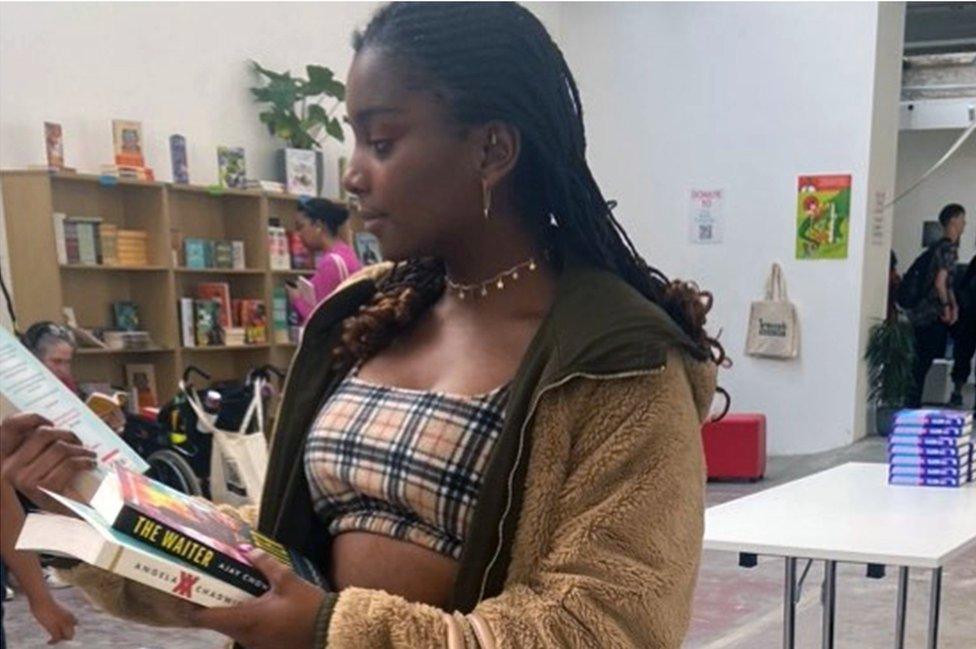
Estelle says the festival reignited her passion for reading
Estelle, who's a biochemistry graduate, went to the festival with her friends.
The 22-year-old says it's important events like this exist.
"With the cost of living crisis at the moment, when I do have extra money, I would rather put it towards something else," she says.
"And even though I love reading, I wouldn't be spending my money on books as it wouldn't be that high on my priorities list.
"But with events like this, it means I'm still able to enjoy my passion of reading and finding new books."
So which books did Estelle take home?
"XX by Angela Chadwick. That one sort of had a science link," she says. "And I chose Good Intentions by Kasim Ali. He was actually at the event and I got my book signed.
"I've never met an author in person before of a book that I've read, so that was very exciting."

Listen to If You Don't Know on BBC Sounds
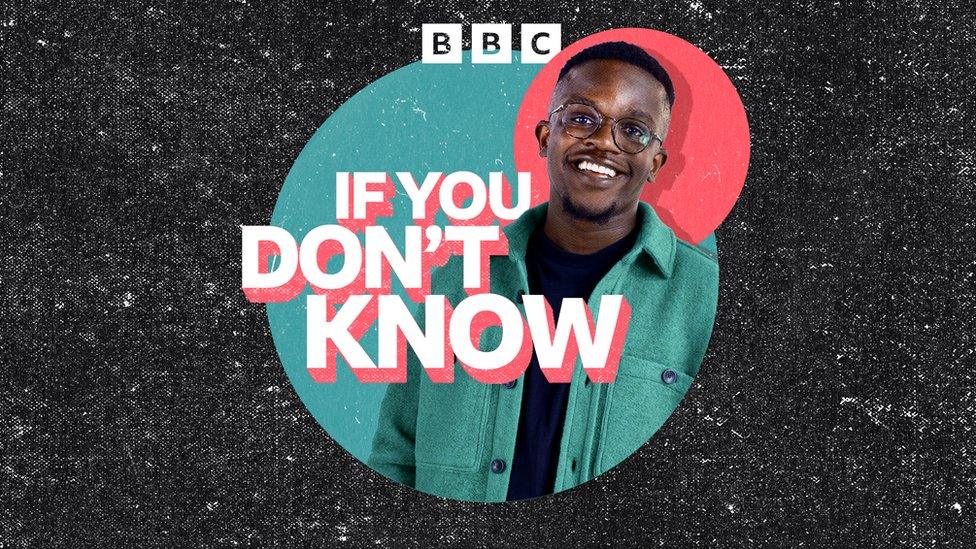
Listen to the latest If You Don't Know podcast to hear more about Sofia's Free Books Campaign.

Despite the campaign's success, Sofia says some people have tried to take advantage of it.
"Sometimes you can say to take a couple of books and then you see people with a big, big, stack," she says. "And you just have to remind people they are supposed to be communal.
"But I've found that the people that have really benefited from it have taken the time and care to make sure that they only take what they're allowed to take," she adds.
"They stop and actually have a conversation with you about what it means to them to be able to do that.
"So I've found that the good outweighs the bad."


Follow Newsbeat on Twitter, external and YouTube, external.
Listen to Newsbeat live at 12:45 and 17:45 weekdays - or listen back here.
Related topics
- Published13 February 2023
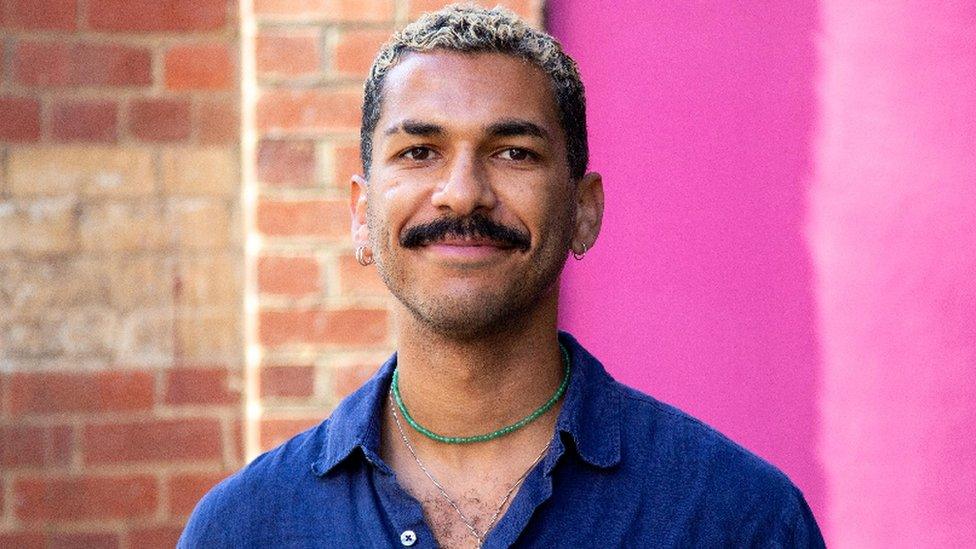
- Published14 February 2023
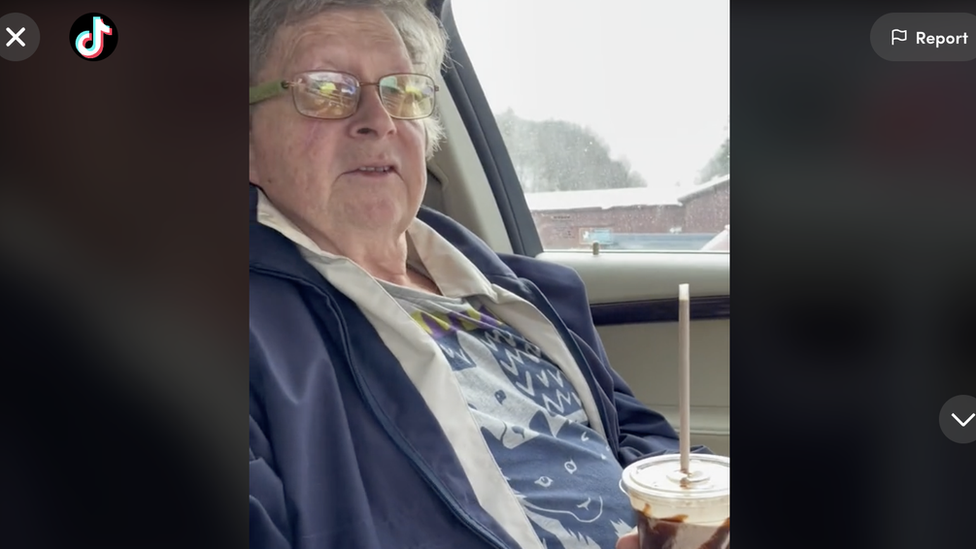
- Attribution
- Published5 March 2020
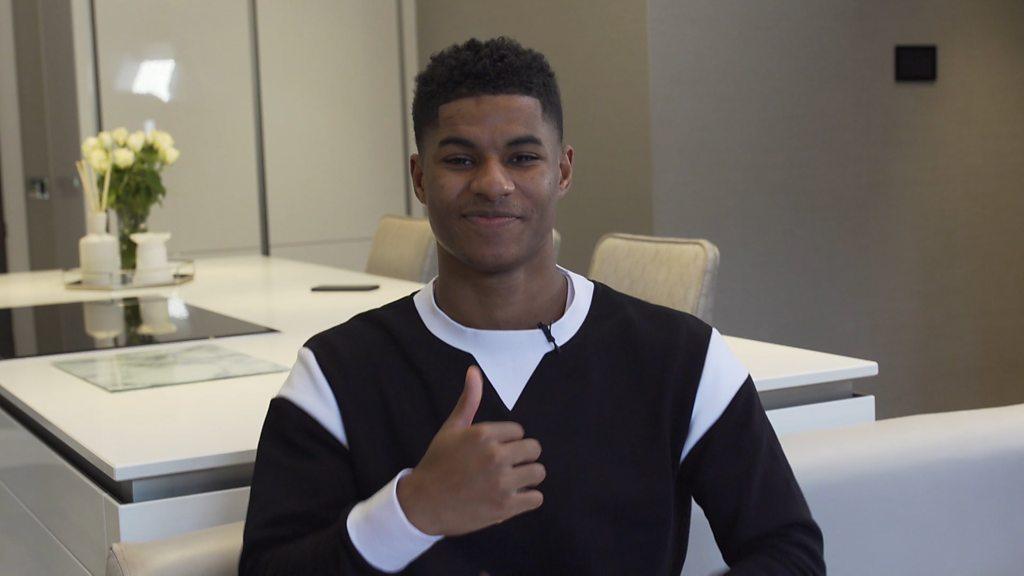
- Published5 October 2022
